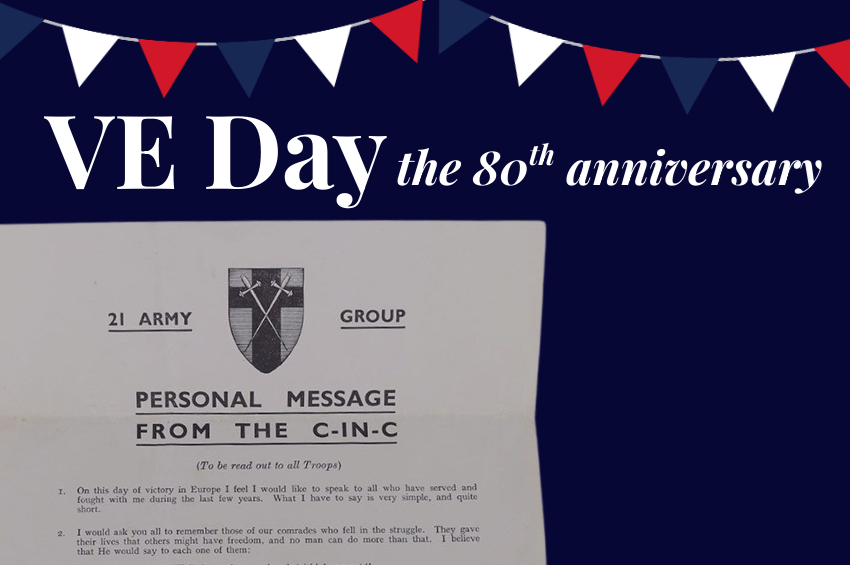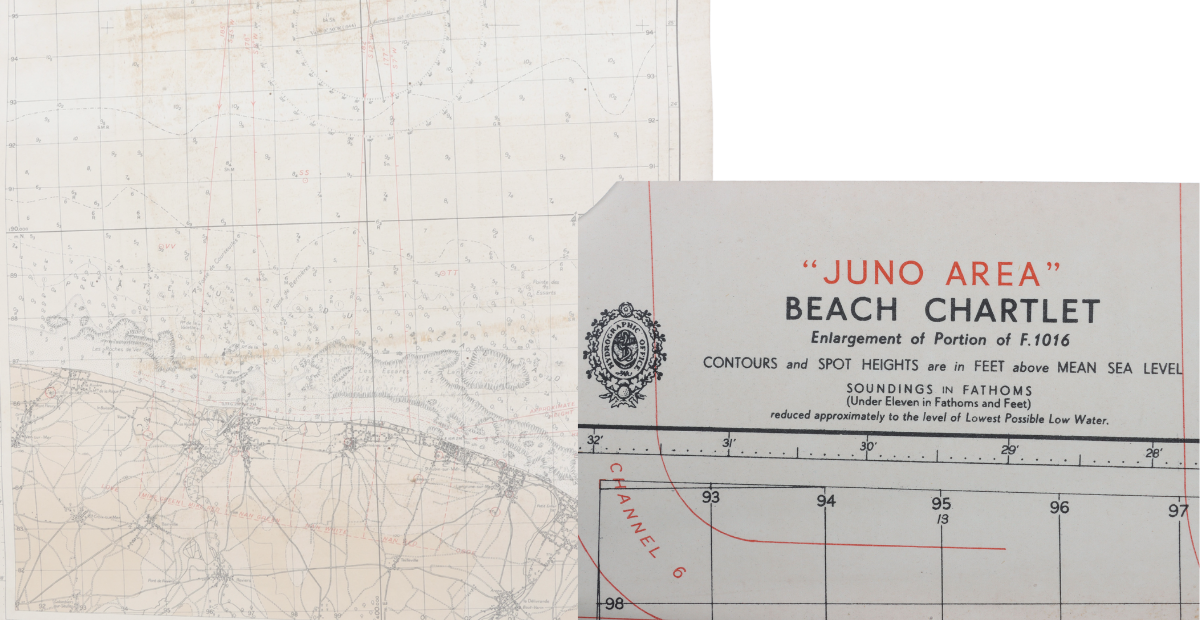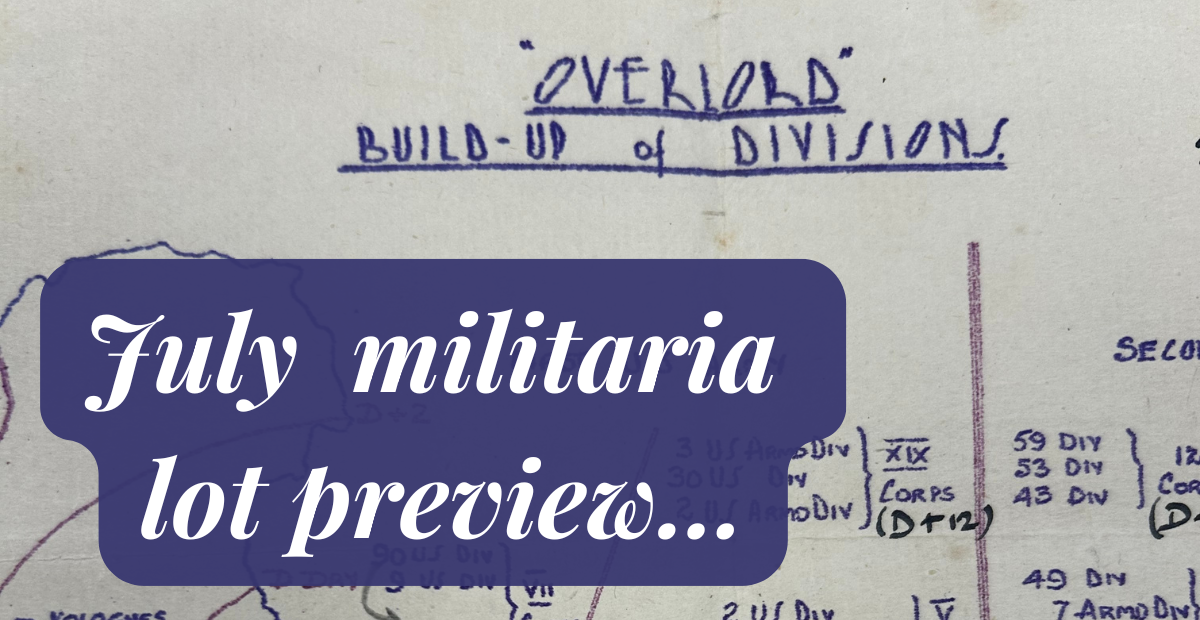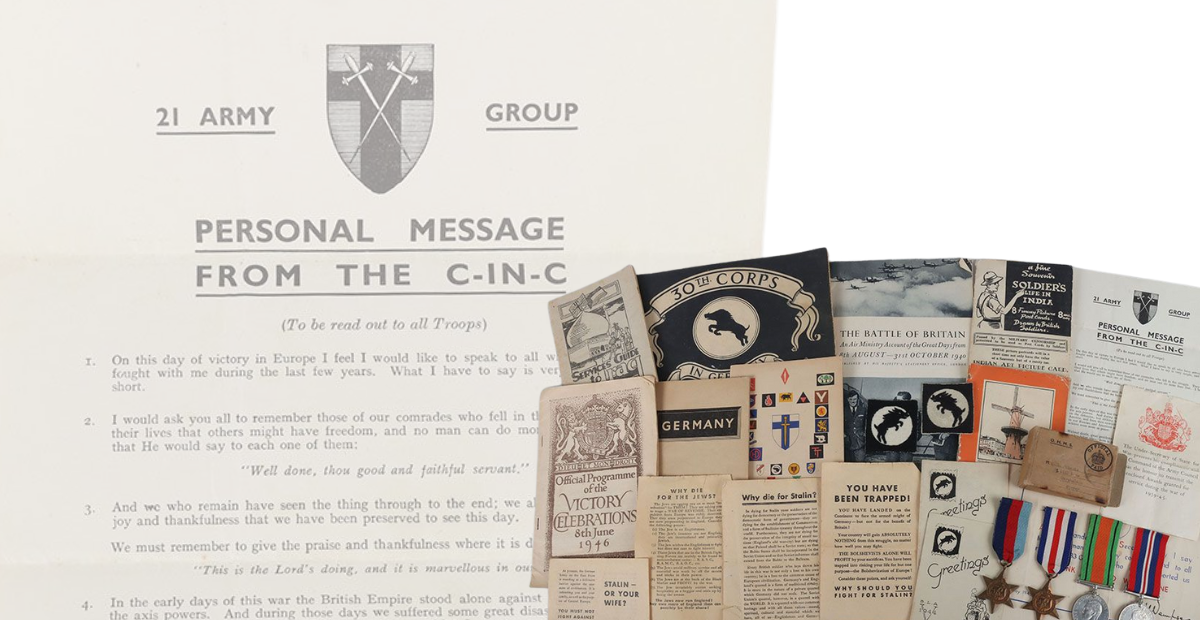VE Day | The 80th anniversary
06/05/2025 | Matthew Tredwen , Emma Garnham

8th May 2025 marks 80 years since Victory in Europe Day (VE Day). As the nation marks this anniversary, C&T Auctioneers is taking a look through our militaria lots, of auctions past (and some to come), to learn about the historic day.
What is VE Day?
VE Day, or Victory in Europe day, is celebrated on the 8th May and marks the unconditional surrender of Germany to the Allies in 1945. Celebrated across Europe, VE Day heralded in a new era of hope, an end to total war in Europe and the uncertainty and suffering it entailed. T met be noted, however, that VE Day did not mark the end of the war. Indeed, fighting continued in the Pacific until 15th August 1945, when Japan surrendered to the Allies - better known as VJ Day.
Why did VE Day happen?
VE Day was the result of years of strategising and manoeuvring by both Allied and Axis powers. One of the most famous examples is D-Day, or the Normandy landings, where Allied forces invaded German-occupied France through a series of beach landings in Normandy. This invasion was known as Operation Overlord, and signalled the beginnings of the liberation of France. At C&T, we have had the privilege of handling and auctioning materials relating to these efforts, including an invasion planning chartlet for Juno Beach, the second beach to be assaulted by Allied forces on D-Day.

This chartlet was sold in February 2024 for an impressive £480 by virtue of its historical significance. It is with great excitement that we look to our upcoming live military auction in July, where another historically significant collection of documents relating to the end of the war will be coming under the hammer (we’re sworn to secrecy on this for now, but stay tuned).

The tide of war had long been against Germany. As forces approached Berlin in the Spring of 1945, German leadership began to falter, while the rest of Europe waited with bated breath for news of peace. Having succeeded to a ruined power at the start of May, the new German leader Donitz rapidly began negotiating a peace with Allied forces, with the frantic aim of preventing Germany from falling under Soviet power. This resulted in the German delegation signing a surrender on 7th, May 1945. Shortly after, BBC broadcasting was interrupted to announce the long-sought after peace, which would be marked by a national holiday the next day - not that people waited to start celebrating!
How was VE Day celebrated?
Although still enduring the restrictions and shortages of war (rationing did not completely end until 1954), the nation found a way to celebrate. The people took to the streets in jubilation, with street parties and parades across the nation. The Board of Trade even took the purchase of red, white and blue bunting off of rations so that people could deck the streets in patriotic fashion. Of course, Londoners joined the celebrations, with the British Bulldog himself, Winston Churchill, having ensured that the Ministry of Food has prepared beer supplies for the capital. To mark the victory, a message from Field Marshal Montgomery was read to the troops (an example of which can be seen in the ephemera collection below, sold for £90 in October 2024).
Looking back…
As we celebrate the 80th anniversary, we are invited to reflect on the history of the Second World War. We remember those who suffered in the regimes and fighting, and commemorate those who made the ultimate sacrifice. Very few are left who can recall the war from their living memories, and the era seems at times to be slipping into a more distant, disconnected and impersonal history. At these times, it is increasingly important to actively seek out our histories.
‘It is important that we remember this milestone in history as we celebrate that as a nation we came together to defeat tyranny. As we have lost many of the people who took part in WW2 it is important to keep their memories alive by celebrating VE day and other anniversaries of our armed forces and nation. The diversity of our nation is all due to the efforts of the allied nations during WW2. It is important at this time to remember those members of the armed forces and home front who left their homes in India, Australia, New Zealand, Caribbean, and elsewhere, to answer the call of King and Empire.’
- Matthew Tredwen, militaria specialist.


